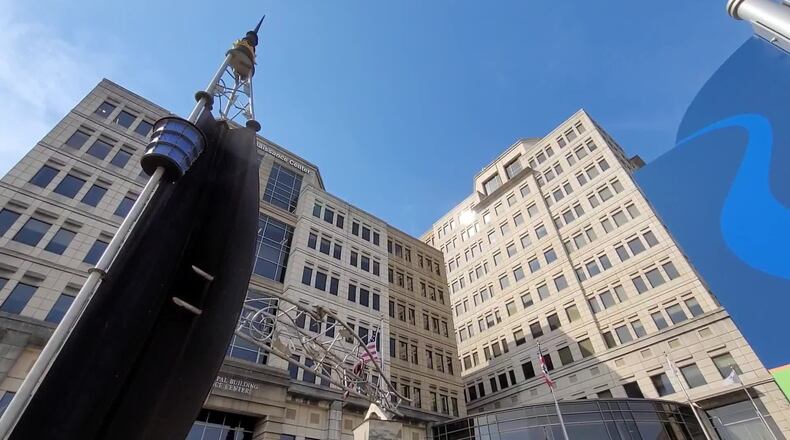Sales tax receipts lag three months so the numbers likely show consumers were skittish in April 2020 when the pandemic began, compared to this year when people still have federal stimulus money in their pockets.
“The ongoing stimulus at the federal level and the extended unemployment payments are benefiting the county overall, because we are just not seeing any sort of decrease in our sales tax,” Finance Director Angel Burton said. “We saw a slight decrease last year in the midst of the pandemic and the shutdown. Other than that we’ve fully recovered and seen an increase monthly.”
The county is not however counting on the upward trajectory to continue indefinitely. Officials are projecting a 10.8% increase in sales tax for the remainder of this year up to $49.5 million, but only a 2% increase year-to-year or $50.5 million for next year.
Sales tax is the largest revenue source for the general fund and the commissioners last week approved the $106.7 million general fund tax budget that will be supported by an estimated $113.3 million in revenues. The tax budget is a first step in setting the 2022 spending plan, it will be honed throughout the rest of this year.
County Administrator Judi Boyko said even most economists are not predicting what the future might hold, so they hope to have more guidance toward the end of the year to set reasonable expectations for sales tax revenues.
Commissioner Don Dixon agreed, saying “that’s the million dollar question” especially since the future of the pandemic is still uncertain. Health Commissioner Jennifer Bailer warned this week the number of cases countywide spiked 117% in the past two weeks as the Delta variant continues to spread.
“I just think we have to be very conservative and take a lesser amount than what our normal was three years ago,” Dixon said of budgeting for the future. “And keep an eye on what’s happening and keep an eye on the budget... I don’t have a good feel for it right now.”
Miami University Emeritus Economics Professor Bill Even said the county can probably expect a dip in sales tax next month because it will reflect spending from May, when retail sales dropped nationally.
“At the very least I wouldn’t expect them to grow in the next few months like they did the first three or four months of this year...,” Even said pointing to a sharp drop in the stock market Monday. “There seems to be the potential for some nervousness in the economy and that may cause some consumers to be a little stingier with their money.”
Other revenue streams are also trending strong under the “other” revenue category collections are $4.38 million higher than last year. Burton said the bulk of that, $3.26 million is a rebate Gov. Mike DeWine gave to Workers Compensation Bureau policyholders to ease the impact of the pandemic.
While revenues are up, expenditures are down $1.6 million year-to-date from a year ago, especially in the materials and supplies category which dropped 21.2%. Boyko said that can be pinned to the pandemic as well. They had to take steps so the courts and many other other areas could operate remotely and provide personal protective equipment and retrofit facilities for social distancing among other unique expenses.
“The first six months of 2020 we were fully engaged in mitigation and attention to COVID,” Boyko said. “So there were a lot of one-time costs in materials and supplies and contracted services and things like that that were kind of a one-time, off mark cost.”
About the Author

